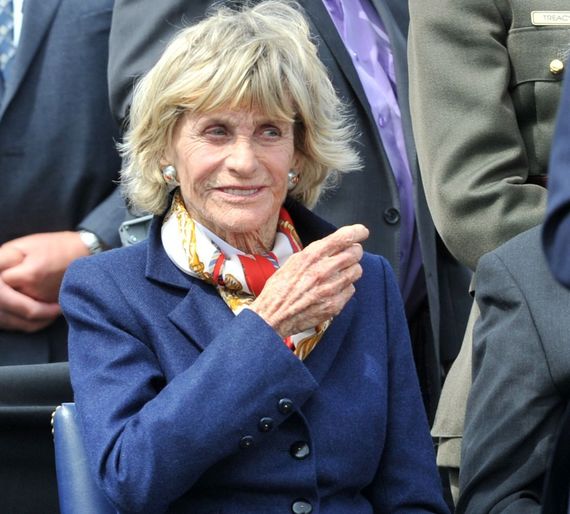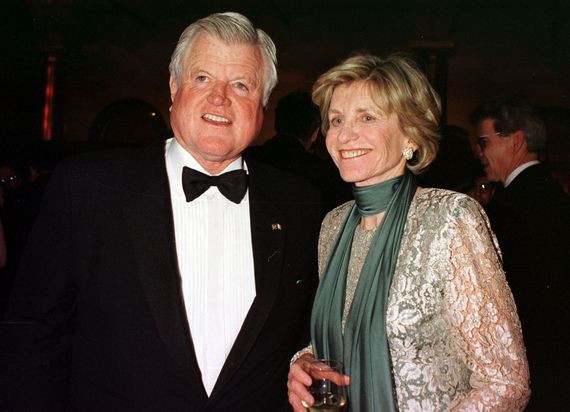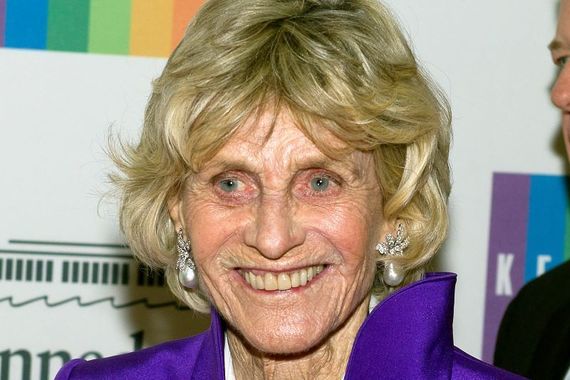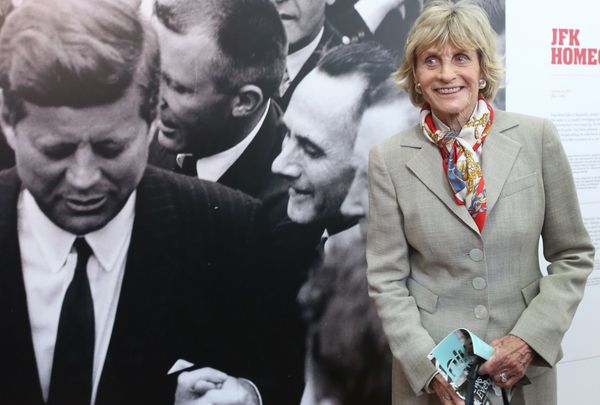Jean Kennedy Smith, the sister of John and Robert F. Kennedy, has died in Manhattan at the age of 92. Her daughter Kym confirmed the news on Wednesday, June 17.
Jean Kennedy Smith was the youngest and last surviving sibling of one of the most famous families in American history and played a key role in brokering a peace deal during the Troubles in Northern Ireland.
She entered the political world relatively late when, at the age of 65, President Bill Clinton appointed her as the US Ambassador for Ireland in 1993.
Stationed in Dublin during the 1990s, she would go on to play an integral role in the peace process by bringing the IRA in from the cold at a time when it was both unfashionable and politically unfavorable to do so.
Read more: Ted Kennedy's touching tribute to his sister Jean Kennedy Smith
Kennedy Smith was appointed to the role just as whispers of peace began to surface, potentially bringing an end to one of the bloodiest periods in modern Irish history.

Former Ambassador Jean Kennedy Smith.
The youngest Kennedy played an important role in advancing those peace talks, but she had to break the rules to do so.
She visited Northern Ireland on multiple occasions and met with then head of Sinn Féin Gerry Adams at a time when authorities in Washington expressly forbade it.
Politicians in London and America believed Adams to be nothing more than a terrorist mouthpiece, but Kennedy Smith helped to secure him a temporary US visa to make his case for an IRA ceasefire and, more optimistically, for British withdrawal from Northern Ireland.
The visit was successful and the IRA announced a historic ceasefire on Aug. 31, 1994.
She encouraged President Clinton to meet Adams in the White House on St. Patrick's Day of the following year, granting a never-before-seen air of respectability to Sinn Féin.
However, Sinn Féin was still excluded from the peace talks in Northern Ireland and the IRA ceasefire broke down in 1996.
Again, Kennedy Smith played a key role in restoring the uneasy peace.

Senator Edward Kennedy and Jean Kennedy Smith.
She met with IRA leader Joe Cahill and scolded him over the resumption of IRA violence. Less than a year later, the ceasefire was restored and Sinn Féin finally had a seat at the negotiating table.
Those negotiations eventually led to the Belfast - or Good Friday - Agreement in 1998, a landmark agreement that has facilitated peace in Northern Ireland and greatly reduced sectarian violence over the last two decades.
Jean Kennedy Smith left the role of Ambassador in 1998 as Northern Ireland moved toward a new era of peace and reconciliation and Irish President Mary McAleese made her an honorary Irish citizen in recognition for her efforts throughout the peace process.
She leaves behind a legacy of activism and her death marks the end of one of the most renowned and celebrated groups of siblings in American history.

Jean Kennedy Smith.
She is survived by her sons William and Stephen Jr; her daughters Kym and Amanda; and her six grandchildren. She had been widowed since 1990 after her husband Stephen died of cancer.
The US Embassy in Dublin issued a statement following the news of her death and said that she had helped to bring peace from the "dark days of violence" in Northern Ireland and that she worked tirelessly to strengthen the bonds between Ireland and America.
"Throughout her life and during her tenure as Ambassador, she was an advocate for persons with disabilities and the founder of Very Special Arts, a non-profit organization affiliated with the John F. Kennedy Center that promotes the artistic talents of children, youth, and adults with disabilities," the American Embassy said in a statement.
"Ambassador Kennedy Smith worked tirelessly to strengthen the bonds of the U.S.-Ireland relationship and to reinforce those "enduring links" the late President John F Kennedy spoke about fifty-five years ago on his visit to Ireland, for which she accompanied him.
"In one of her final public speeches as Ambassador to Ireland, Ms. Kennedy Smith said, “Though I am leaving soon, I am not really going away because my heart will always be here.”"
Ar dheis Dé go raibh a hanam.




Comments